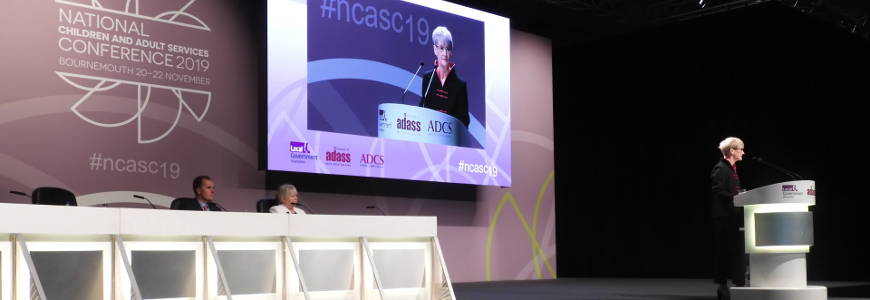Policy must focus on better outcomes not just access to work

The greatest opportunities to make a real and tangible difference to a child’s life chances occur when they are very young, in the first five years of life. Evidence shows that babies born into poverty are more likely to have low birth weight and by the age of three are, on average, nine months behind in development terms than their wealthier peers. The attainment gap widens further in the school years. Access to early education and high quality childcare is linked to better academic results and improved cognitive and socio-emotional development in primary schools, particularly for children from disadvantaged backgrounds. It plays a crucial role in reducing the outcomes gap between the most and least disadvantaged children.
Improving children’s outcomes should be at the heart of any early years policy. While childcare has been a policy priority for successive governments, the aim has predominately been to get more parents into work. The 30 hours ‘free’ childcare offer for working parents of three and four year olds is poorly targeted, it effectively excludes the most in need households, yet individuals who earn up to £100,000 per annum can benefit from this offer. We are losing opportunities to make a difference to the most disadvantaged children and families. Reducing the income threshold would helpfully narrow the policy focus to the most in need households and any funding could be reinvested to help the early years sector recruit, and retain, the workforce they desperately need.
The funding attached to the existing 30 hour ‘free’ offer is insufficient to meet actual costs with providers having to pass costs on to families to make up the shortfall or face closure. This is affecting the viability of both individual providers and the sector as a whole. According to the Women’s Budget Group £1.8bn is required to make up the shortfall for existing funding entitlements, following years of chronic underfunding and pressures exacerbated by the cost of living crisis. There is significant underinvestment in the expansion of the offer to younger children the WBG said, estimating that an extra £5.2 billion would be needed in 2025-26 in addition to the extra £4.2 billion the government expects to be spending to cover the true cost of provision for all the funded hours.
By expanding the ‘free’ childcare entitlements more households will be able to benefit from the offer, however, these reforms have come at a time when the sector is facing significant challenges including high costs because of the cost of living crisis and severe workforce challenges, with a significant proportion of the workforce choosing to leave for higher paid roles in retail. A recent government consultation on how early years funding is distributed has concluded. However, no matter how carefully funding is distributed, if the funding envelope is not sufficient the market will not be able to successfully deliver on these new expectations, children and families will lose out.
The unique ability of the early years sector to close the attainment gap must be at the heart of designing and implementing any future reforms over getting parents into work. This should be backed by sufficient funding from central government to ensure the funding available reflects the costs of delivering the reforms.
This column first appeared in CYP Now website on 3 Jan 2024
Related Articles
ADCS comments on recent price increases for placing children and young people...
In General
Commenting on the Children’s Social Care Innovation Programme Round 2 Final...
In General
ADCS has produced this short suite of policy position papers
In General
Rachel Dickinson comments on the latest Spending Round announcements on the...
In General
The Civil Society Strategy (2018) recognises that youth work can have a...
In General
The Association recently held its annual conference in Manchester. This was the...
In General
Matt Dunkley, Chair of the ADCS Resources and Sustainability Policy Committee,...
In General
Steve Crocker comments on Safeguarding Pressures Phase 8 full report
In General
ADCS President, Alison O’Sullivan’s speech to the 2015 National Children...
In General
During the first few months of the pandemic all of us managed to adapt and...








